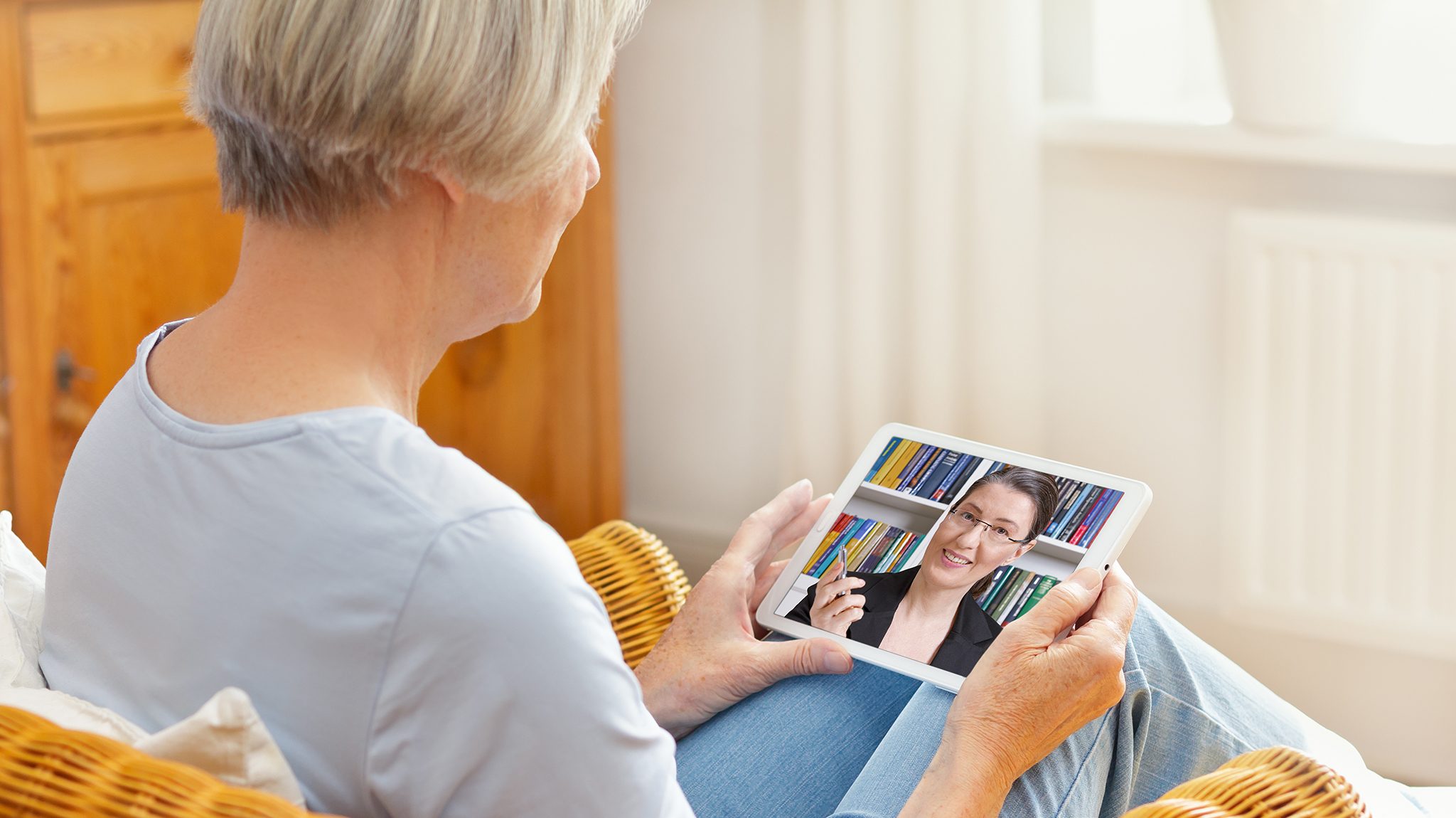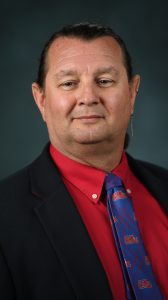
The University of Mississippi Counseling Center has transitioned to online video chats to continue helping clients during the ongoing COVID-19 pandemic. Adobe Stock photo
OXFORD, Miss. – The need for mental health services only grows during times of global crisis and mandatory quarantines, so the University of Mississippi Counseling Center has transitioned to online video sessions to continue helping clients in the safest possible way.
Earlier this month, UM announced that all courses would be delivered online or via other remote methods for the remainder of the spring semester and transitioned to a new mission-critical protocol for employees across campus to work remotely from home. As a result, the UCC no longer offers in-person counseling at Lester Hall, but its counselors are now available through telemental health sessions.
Many people may be dealing with higher levels of anxiety because of so many uncertainties during the pandemic, said Bud Edwards, the center’s director. The new video chat format allows UCC counselors to continuing putting it all into perspective for those who need to find peace.
“It’s helpful to take a deep breath and recognize that we as a country have had to go through many serious things before,” Edwards said. “While it takes its toll on all of us, we will eventually get past this. Ole Miss will eventually start holding in-person classes again, and we will resume sports at some point.
“Life will be different, but it will again be more like what we’re used to than it is now.”
The staff began telemental health Monday (March 30), and the service is open to faculty, staff and students located inside the state’s borders. Referral services are available to clients from the campus community who are out of state. For more information, or to schedule an appointment call 662-915-3784 between 9 a.m. and 4 p.m., or email counslg@olemiss.edu.
Adjustment issues, isolation and depression, as well as anxiety, are common during a time when everyone is almost always in their homes and news reports seem dire, Edwards said.
Many will experience losses or changes to their social support networks, and people avoid in-person contact to avoid contracting the COVID-19 virus. Many students are also at home with their parents and taking online classes, which means the support network they have on campus is harder to maintain or is completely lost.
Self-care and wellness techniques are important tools for combating issues related to the new realities of life, Edwards said.
“Now, more than ever, it is important for people to practice their best wellness strategies,” he said. “It’s important to stay physically healthy, which helps you stay mentally and emotionally healthy. It is important to get a good night’s rest and eat healthy.
“Take a walk around your neighborhood. Getting good, safe exercise, sleep and nutrition is very important.”
If emotional problems persist or begin to interfere with how you function in your daily life, it’s probably time to seek counseling, Edwards said. But the help available from the UCC goes beyond treating pandemic panic.
The staff still offers therapy for common issues many people face, including depression, substance abuse, perfectionism, grief, gambling addiction and relationship struggles.
There’s a widespread movement to foster security and a sense of community during this time of social distancing, said Laura Schulenberg, a UCC counselor. Taking advantage of those opportunities can be helpful to battle more common, mild feelings of loneliness and isolation.
“There’s lots of opportunities to socialize in a different way while also engaging in both self-care and self-exploration,” Schulenberg said.
“Michael Franti and his family hosts daily concerts at home on Instagram. Mo Willems is giving doodling lessons during lunchtime at the Kennedy Center, and NASA space tours are available online. There’s also free access to apps like Headspace.”
When it feels that taking part in those types of activities don’t help, it may be time to see a counselor, she said.
Clinicians screen clients to determine if they are a good fit for telemental health services. The UCC offers referral services for those dealing with issues that may need a different kind of approach.
Katie Harrison, a UCC counselor, said recent conversations with her clients lead her to believe that anxiety will be a common and persistent issue for the foreseeable future. Telemental health sessions can help with that.
“Most of them seem all right now,” Harrison said. “There are no major issues, but like with everyone else in the world, they’re anxious. Everyone is worried and fearful of the unknown and uncontrollable. We’re all in that together.”
Harrison was among the UCC counselors who rapidly became credentialed for telemental health in the wake of COVID-19 closings. She was impressed with her coworkers’ commitment to making a difference in a time of need.
“Within the span of a week-and-a-half, all of our staff got on the ball and got certified to do telemental health” Harrison said. “We figured out how to take care of our clients for the time being and figured out how to keep everything covered.
“I have been blown away by how everyone did what they needed to do in a short period of time to take care of our clients.”
Juawice McCormick, UCC assistant director and employee assistance program counselor, was certified in telemental health before COVID-19. She sees the potential of telemental health.
“We have an opportunity now to further expand our services, and this is a rich environment for us to do that,” McCormick said.
Clients may find that they are more comfortable with telemental health, particularly students who have grown up in a world of FaceTime. Since it is done from the comfort of a client’s home, therapists may also find this beneficial because it lets them see a little of how the person is living at the time of consultation.
“It is not an appropriate modality for everyone, but we’re going to be working with a lot of folks who don’t normally access our services,” McCormick said. “It will be a great intro for many people to what counseling can do for them.”
The focus on delivering a new line of services also has energized the UCC staff and given them a renewed sense of purpose, she said.
“This all reminds me of how brilliant these folks are, and just how much they want to serve their clients,” McCormick said. “We are all seeing this as an opportunity to work from a place of strengths, to be able to provide what our clients need in these very uncertain times.
“The situation is making us get better at all facets of our game.”
The UCC will continue to improve its services through the new counseling method, which counselors said they believe will be an industry standard for years to come.
“Even after COVID-19, more students are going to request this,” Harrison said. “There are a lot of students in different counties who commute or go to satellite campuses that we don’t get to connect with right now.”
“Telemental health will get us out there to help them get through this, as well as the other common problems of life.”
